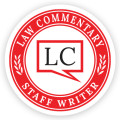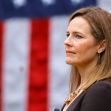Federal Communications Commission (FCC) Commissioner Brendan Carr has publicly criticized Vice President Kamala Harris's guest appearance on Saturday Night Live (SNL), asserting that it breached the agency’s “equal time” rule. The rule is designed to ensure fairness by allowing rival political candidates to request equivalent airtime when a candidate appears on broadcast television.
“This is a clear and blatant effort to evade the FCC’s Equal Time rule,” Carr, a Trump appointee, stated on the social platform X, in response to a news post about Harris’s appearance. He argued that the show’s broadcast used “public airwaves to exert its influence for one candidate on the eve of an election,” unless equal time was offered to other candidates.
Harris appeared during the cold-open segment of the show alongside comedian Maya Rudolph, who has previously impersonated her. The sketch featured a lighthearted exchange in which Harris offered words of encouragement, appearing through a mirror to Rudolph’s version of the vice president. This marked Harris’s first SNL appearance, days before the November election.
In a past interview with The Hollywood Reporter, SNL executive producer Lorne Michaels had noted the complexity of featuring candidates during election seasons due to the “equal time” rules. He emphasized that featuring a main candidate could potentially trigger the need for appearances from all qualifying candidates, including those with minimal ballot presence.
A spokesperson for the FCC confirmed to The Hill that the agency has not yet received a complaint nor issued a formal ruling regarding Harris’s SNL appearance. NBC and Harris’s campaign have not commented on the situation.
The FCC's equal time rule is an important regulatory measure designed to ensure fairness in broadcast media during election periods. Formulated under Section 315 of the Communications Act of 1934, the rule requires that broadcast stations provide equal opportunities for airtime to all legally qualified political candidates when one candidate appears on the station. This mandate aims to prevent broadcasters from favoring a particular candidate and unduly influencing public opinion.
The equal time rule applies when a candidate appears on entertainment programs or non-news segments, mandating that broadcasters provide comparable airtime to other candidates upon request. However, certain exemptions apply. For instance, the rule does not cover appearances in bona fide news programs or news interviews. Additionally, documentaries and on-the-spot event coverage are exempt if the candidate’s participation is incidental to the subject matter. This framework ensures candidates have fair media access while recognizing legitimate news coverage and non-political content as exceptions.
Entertainment programs, such as Saturday Night Live, fall under the rule's scrutiny if a political candidate appears, as such shows are not classified as news programming. When a candidate like Vice President Kamala Harris appears on an SNL segment, other legally qualified candidates may request equal time under FCC regulations.
While the rule ensures candidates' access to equal airtime, it is not automatically enforced. Interested parties must file a formal complaint for the FCC to evaluate a potential breach. The commission then reviews whether the broadcast qualifies under the equal time provision and if any exemptions apply.
The equal time rule gained prominence in 1960 when then-presidential candidate John F. Kennedy’s appearance on The Jack Paar Program prompted a request for equal time from Richard Nixon’s campaign. The rule, however, does not guarantee the same type of program; it mandates only that equivalent broadcast time is made available.
Commissioner Brendan Carr’s recent assertion that Harris's SNL appearance violated the rule underlines the complexity of applying it to modern media. Carr’s concerns highlighted how such appearances could blur the lines between entertainment and political endorsement, particularly close to an election. This raised questions about potential biases and whether NBC, the broadcaster, should extend equal airtime to other candidates.






